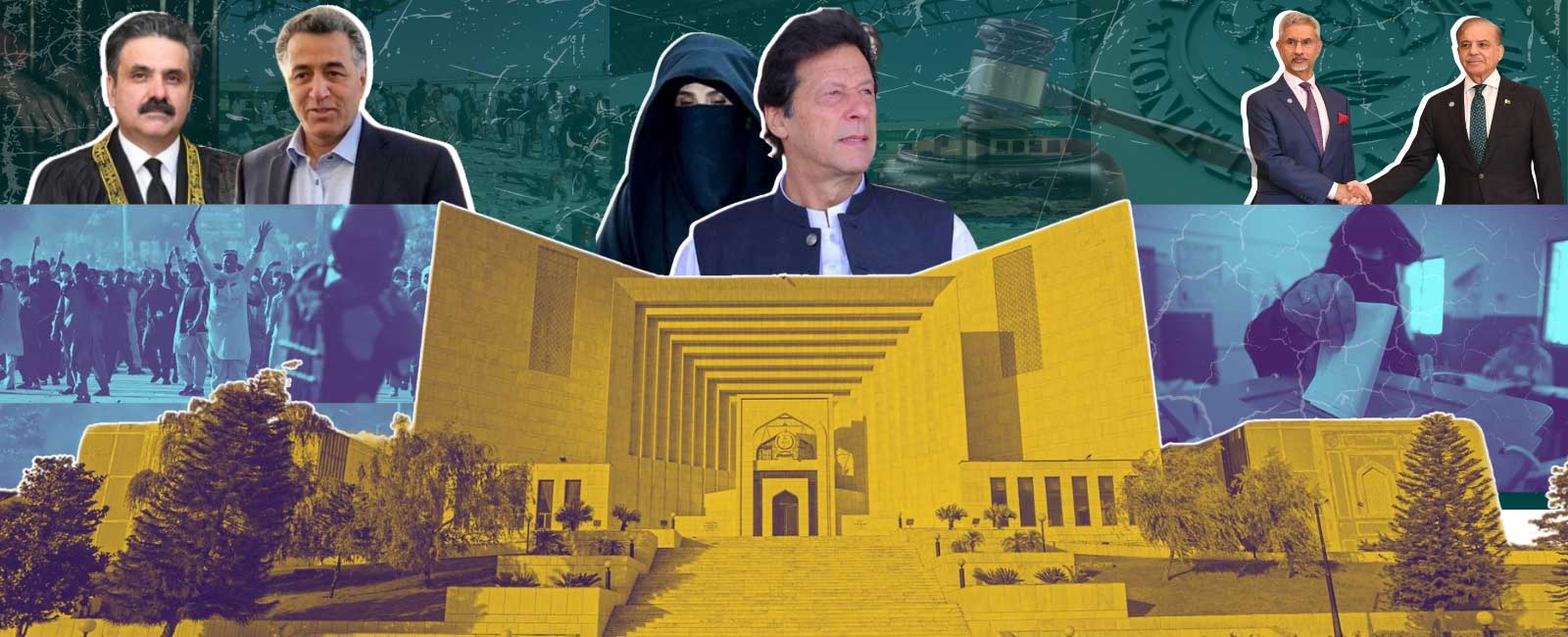Pakistan in 2024: A political rollercoaster of decisions and defining moments
The outgoing year began with a whirlwind of political activity as the country prepared for its most consequential general elections that set the tone for the year's transformative developments

Pakistan endured a remarkably turbulent year marked by intense political unrest, widespread protests, controversial decisions, and significant judicial rulings. A surge in terrorism and tribal violence in the Kurram region compounded the government’s challenges, as it struggled to improve the economy and present a positive image internationally.
As the year draws to a close, let’s have a look back at the events that have shaped the country's political landscape so far.
When 2024 started, much was already unfolding across the country, especially in Islamabad, where widespread anxiety surrounded the general election due to months of delay and uncertain fate of the Pakistan Tehreek-e-Insaf (PTI) regarding the participation in the polls.
Pakistan staged the biggest election in its history on 8 February 2024. Conducted amidst political unrest and widespread discontent, election day was overshadowed by security concerns. A subsequent nationwide internet shutdown further fuelled public frustration.
The delayed release of unofficial results, marked by painfully slow progress, triggered allegations of rigging, raising serious doubts about the overall credibility of the election on a global scale.
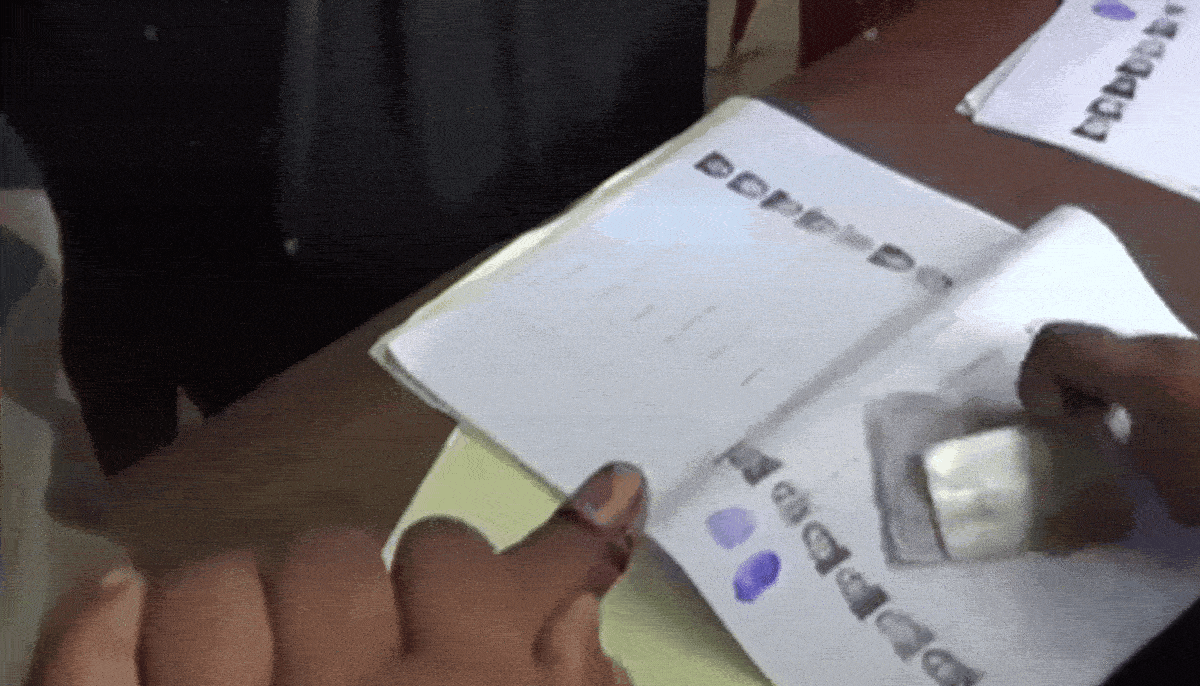
The outcome of the polls did not turn out to be what was expected by the political actors as not a single one of them got a simple majority. But once the results were finallised, the key political players went into weeks of wheeling and dealing before finally forming a new government under a power-sharing formula.
The Imran-founded PTI dominated the polls with the highest number of successful candidates in the February 8 general elections, but since it couldn’t be considered a political party, the Pakistan Muslim League-Nawaz (PML-N) and its long-time ally, Pakistan Peoples Party (PPP) chalked out a plan to form a coalition government, albeit the latter did not take any ministry. In the days that followed, the Muttahida Qaumi Movement-Pakistan (MQM-P) as well as other political parties joined the treasury benches.

Ahead of the elections, the Imran Khan-founded party had received a political setback in the very first month of the year when a trial court convicted the former prime minister and his close ally, PTI leader Shah Mahmood Qureshi, in the cipher case on January 30. Both were sentenced to 10 years in prison — just days before polls.
The very next day, a separate trial court found Khan and his wife, Bushra Bibi, guilty in the Toshakhana case and sentenced them to 14 years in prison.
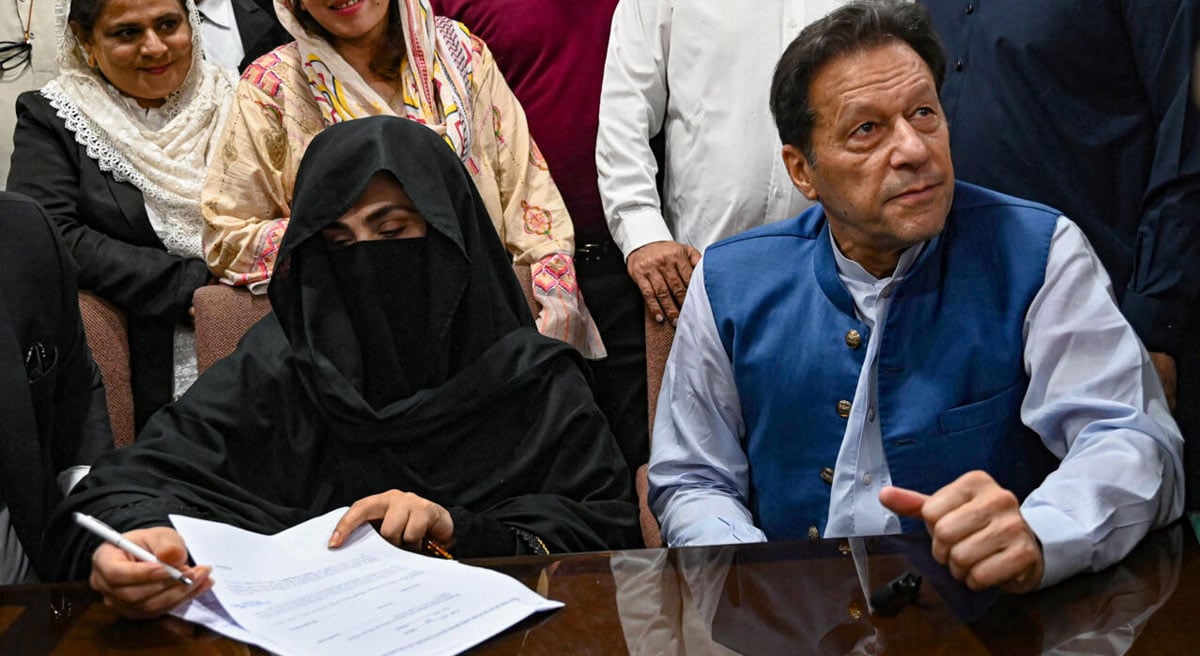
The convictions also rendered Khan ineligible to contest the general elections, marking a significant victory for his rivals, the Pakistan Muslim League-Nawaz (PML-N) and its allies, who sought to rally public support in his absence.
In a third consecutive blow, the couple was convicted in the "illegal marriage" case — also known as the un-Islamic nikah or iddat case — and sentenced to seven years in prison on February 3.
However, in July, a trial court acquitted both Khan and Bushra, offering them a major reprieve. By then, the PTI founder had succeeded in getting his sentence in the Toshakhana case suspended, obtained bail in the £190 million corruption case, and won an acquittal in the cipher case from the Islamabad High Court (IHC).
On July 13, just hours after their acquittal in the iddat case, Khan and his wife were re-arrested in a new Toshakhana case filed by the National Accountability Bureau (NAB).
While the former first lady walked free following the approval of her post-arrest bail in the Toshakhana case-II months later, Khan continued to face the heat.
The above were just a few of the many cases registered against the deposed premier on allegations ranging from corruption to terrorism.
Holding the PTI and its founder responsible for the violent events of May 9, 2023, the government has relentlessly pressed more charges against Khan, leading to his repeated arrests, which ensured that the cricketer-turned-politician remained behind bars.
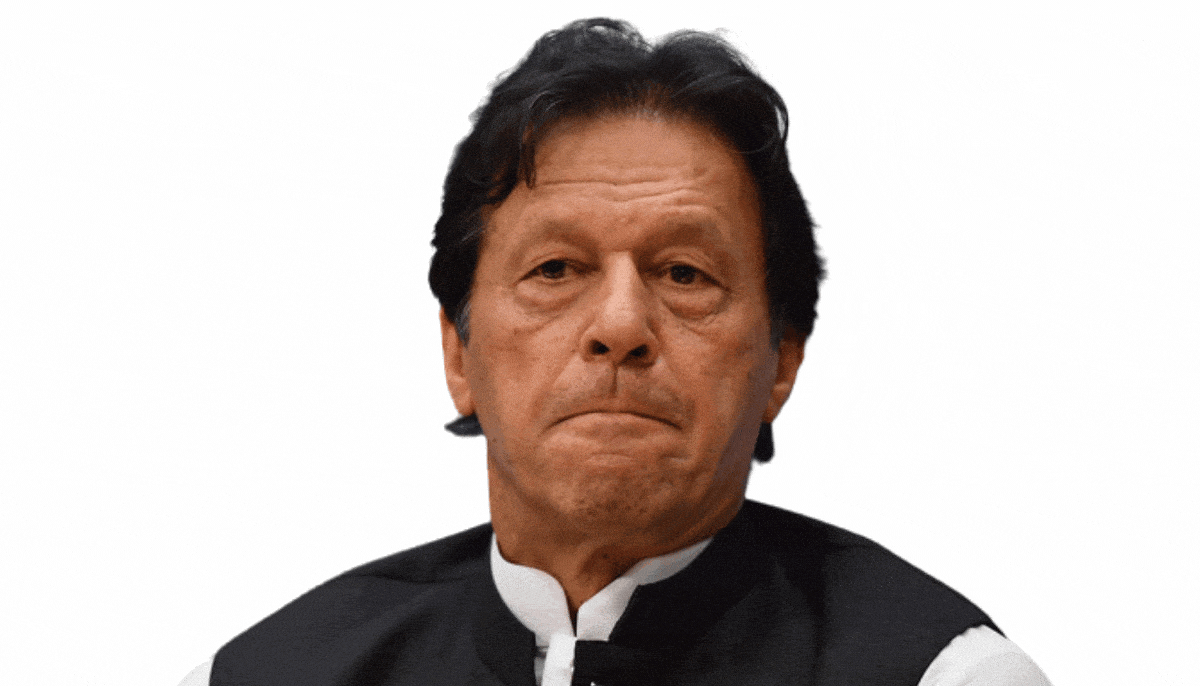
The May 9 events refer to the violent protests that broke out in the country last year following the deposed prime minister's arrest during which, PTI supporters purportedly ransacked and attacked the public properties including military installations.
Moreover, it is worth mentioning that the military is investigating former director general of the Inter-Services Intelligence (ISI) Lieutenant General (retd) Faiz Hamid's role in allegedly planing the May 9 mayhem.
In a startling development, the army took the ex-spymaster into custody on August 12, initiating the process of Field General Court Martial against him.
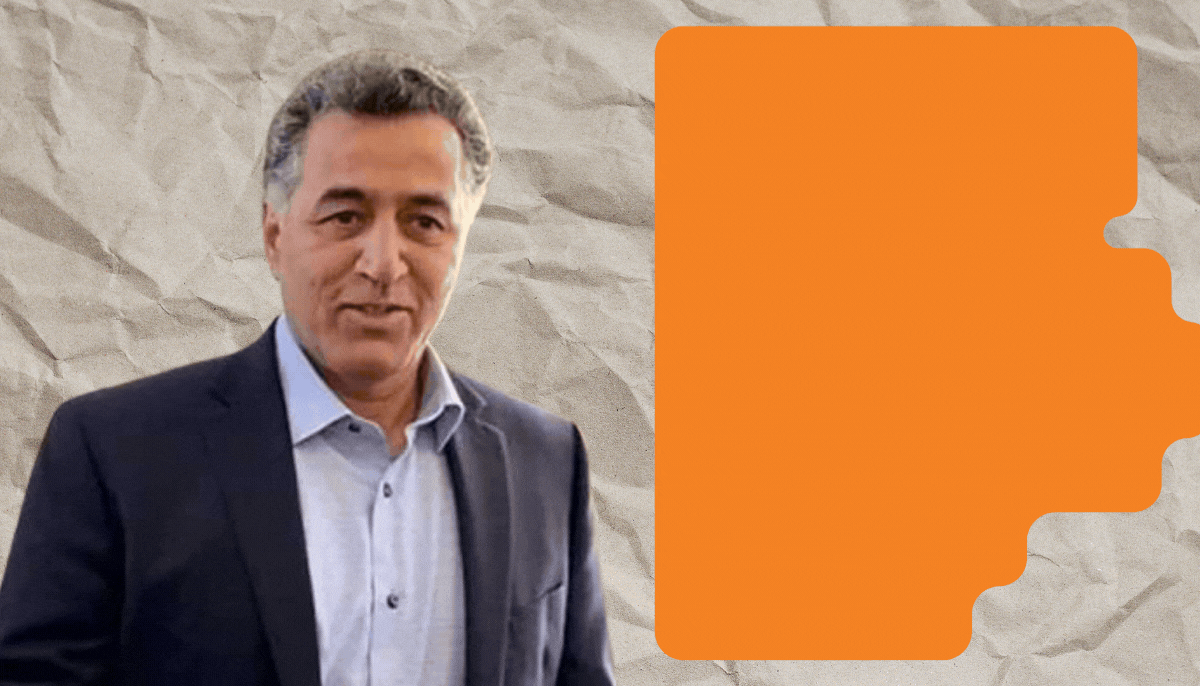
Faiz was formally charged for these allegations on December 10, becoming the first ex-boss of the ISI to be charged with meddling in political affairs.
The charges, filed under the Pakistan Army Act, include alleged land grabbing, seizing valuables from a private housing society, and abuse of power.
The former chief of the country's premier spy agency also faces accusations of creating unrest, including alleged involvement in the May 9 riots, in collaboration with political elements, the Inter-Services Public Relations said.

Bat symbol controversy: Another major setback for the Imran Khan-founded party came when the Supreme Court decided to uphold the Election Commission of Pakistan’s (ECP) decision declaring PTI’s intra-party polls unlawful, which subsequently stripped the former ruling party of its iconic electoral symbol on January 13.

This decision dealt a significant blow to the PTI — arguably the most popular in the country — effectively knocking it out of the electoral arena just days before the February 8 nationwide polls. With no bat in hand, its signature emblem that depicted the cricketer-turned-politician's life as a sportsman, the PTI’s electoral campaign was significantly impacted.
Deprived of the much-sought-after sign, PTI candidates were forced to run as independents with different electoral symbols, rather than contesting as nominees of a political party with one widely recognised electoral symbol.
Reserved seats verdict: On July 12, a full bench of the Supreme Court ruled in favour of the PTI, declaring the opposition party eligible for the seats reserved for women and non-Muslims in the national and provincial assemblies.
The decision served as a victory for the PTI and a significant blow to Prime Minister Shehbaz Sharif's ruling coalition, potentially making Imran Khan’s party the single largest in both houses of parliament.
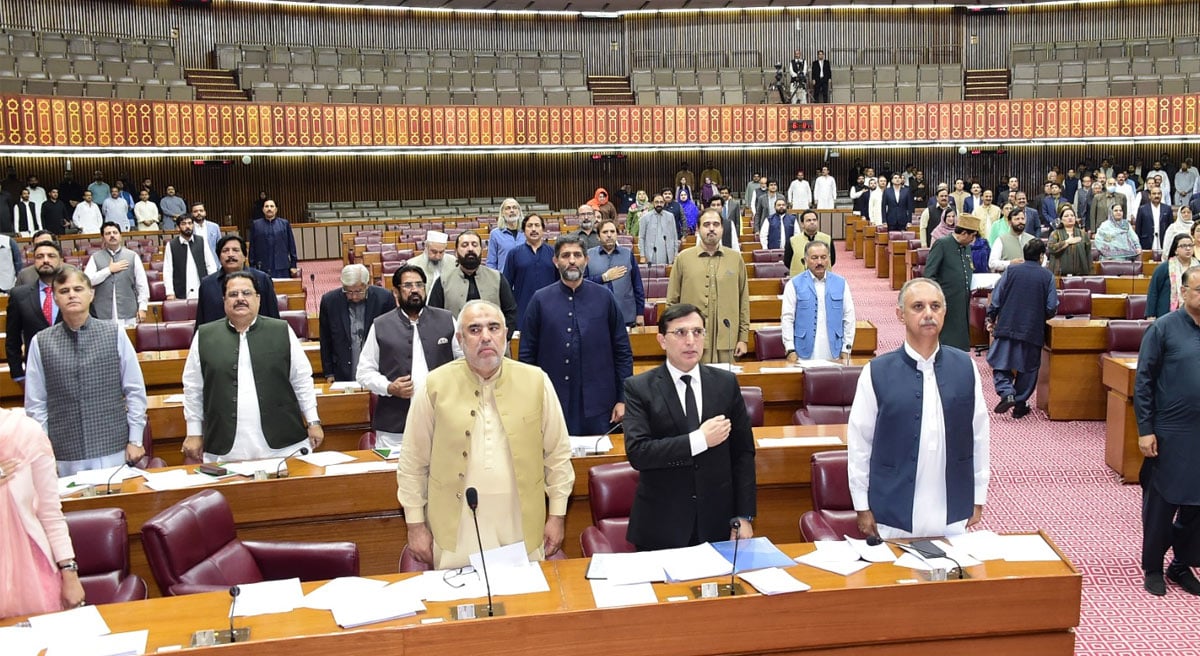
In the light of this decision, the PTI was to get more seats in the lower house of the legislature, but it would still remain lower than that of the ruling coalition, which continues to hold a simple majority of 209 members.
However, the decision remains unimplemented, despite multiple admonitions by the top court.
NAB amendments case: In another landmark decision, the Supreme Court on September 6 unanimously ruled in the incumbent government’s favour, overturning a previous majority verdict in the NAB amendments case.
Last year, a bench headed by then-Chief Justice of Pakistan (CJP) Umar Ata Bandial struck down some amendments made to the National Accountability Ordinance (NAO), 1999.
However, the top court’s new order nullified the former ruling, which positively served the PML-N-led government, restoring the tweaks to the NAB Ordinance it had introduced in its previous stint in power.
The said changes restricted NAB’s jurisdiction to investigate graft cases under Rs500 million besides curtailing its powers to probe fraud unless the victims exceeded 100.
26th Constitutional Amendment: The country saw another episode of intense political manoeuvrings between the political parties in pursuit of the magic number for the passage of the contentious 26th Constitutional Amendment bill this October.
Maulana Fazlur Rehman of Jamiat Ulema-e-Islam-Fazl (JUI-F) took centre stage in the race for parliamentary support, with both the ruling coalition and the opposition, vying for the cleric's decisive backing in parliament to pass or block it, respectively.
The key aspect of the constitutional amendment was that unlike any other legislation, the government needed to secure a two-thirds majority in parliament to successfully execute it.

After weeks-long deliberations, the PML-N, PPP and JUI-F finally forged the consensus and pushed the constitutional package through parliament on October 20.
The amendments introduced several significant changes to the country’s judicial system. Empowering the parliament to pick the CJP from among the three most senior Supreme Court judges was a major highlight of them.
It also curtailed the CJP’s suo motu powers, the formation of constitutional benches, and the performance evaluations of high court judges.
Under the said amendment, Justice Yahya Afridi, one of the most senior judges of the Supreme Court, became the 30th chief justice of Pakistan (CJP) on October 26, for a fixed three-year term.
While changes in judicial leadership are routine, his appointment stood out as historic, because for the first time in Pakistan, the top judge was selected based on the recommendation of a Special Parliamentary Committee.
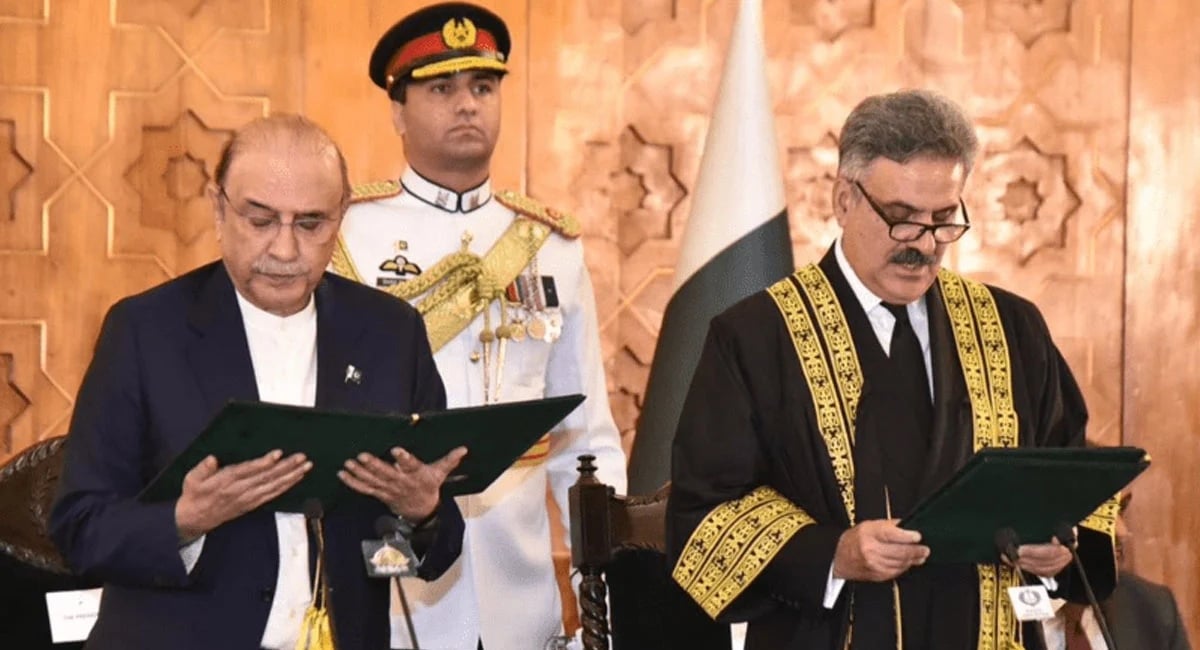
The panel, constituted under the recently enacted 26th Constitutional Amendment, is required to nominate the CJP from among the three most senior apex court judges with a two-thirds majority, marking a significant shift in the judicial appointment process.
The government's primary political rival, the PTI, for which the method of appointing the country’s new CJP was a key point of contention, decided to challenge the judicial reforms and announced a nationwide protest against it.
The political impact of this amendment has been far-reaching, intensifying the power struggle between the ruling coalition and the opposition, while raising questions about the independence of the judiciary.

Calling 2024 the "year of protests" would not be wrong, as it was defined by a series of demonstrations, primarily led by the PTI under four demands; revoke the 26th Constitutional Amendment, "restore" democracy and the Constitution, return the public’s mandate, and release all "innocent political" prisoners.
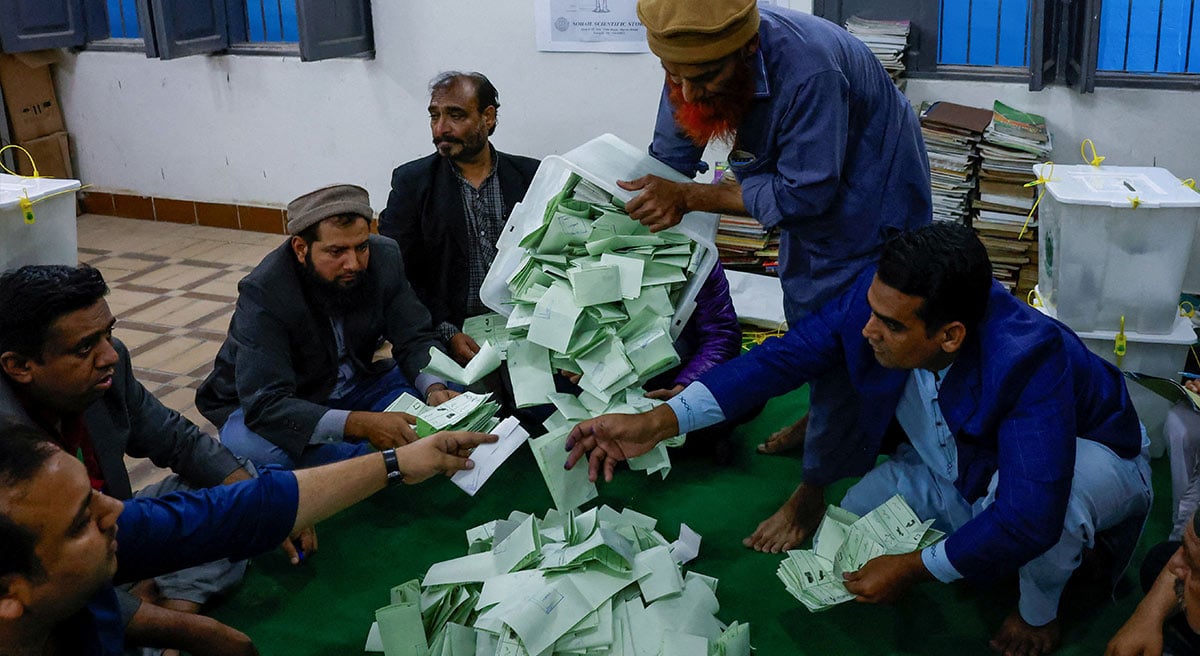
The unexpected results of the general elections sparked widespread discontent among political parties, leading to a wave of protests branded as "anti-rigging" demonstrations. Along with the PTI, the JUI-F — a former coalition partner of the PML-N and the PPP — and multiple other parties also rejected the election results, alleging that the polls had been rigged.
On February 24, the JUI-F staged a joint protest in Karachi, alongside the PTI, the Jamaat-e-Islami (JI), and the Grand Democratic Alliance (GDA), coinciding with the day members of the Sindh Assembly took their oaths. The protest turned violent, marked by clashes between demonstrators and police, leading to arrests for violating Section 144, before it was called off.
The PTI continued to lead protests independently, organising rallies in various cities including Karachi, Lahore, and Rawalpindi. These took place on March 2, March 10, and April 26, following calls from its founding chairman, Khan.
The protests, aimed at challenging what the PTI called a "stolen" mandate, were marred by violent clashes with the police and the arrest of numerous the PTI workers and supporters.
A broader, so-called opposition alliance comprising the PTI, the Sunni Ittehad Council (SIC), Balochistan National Party-Mengal (BNP), Majlis Wahdat-e-Muslimeen (MWM), Pashtunkhwa Milli Awami Party (PkMAP) and JI — launched the Tehreek-e-Tahafuz-e-Ayin, an anti-government protest movement. The movement kicked off on April 13 with a rally in Pishin, Balochistan, held despite the imposition of Section 144.
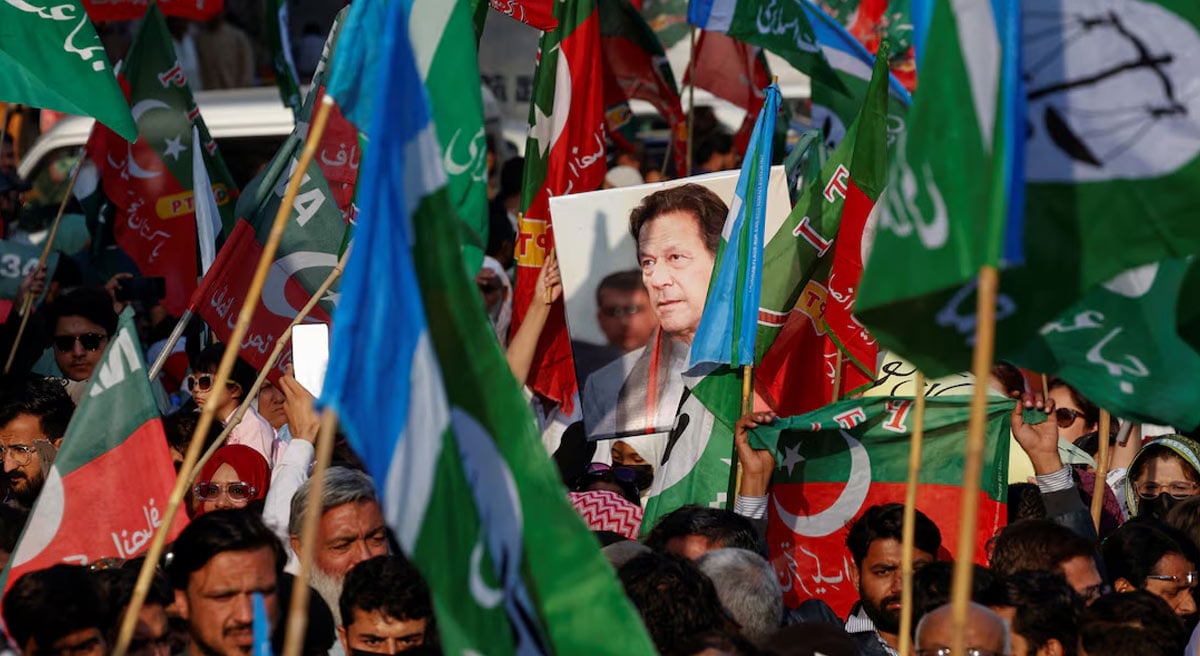
The PTI again took to streets between September and November 2024, marking a period of intense political polarisation in the country as the opposition party continued to challenge the government’s authority despite numerous restrictions.
Firebrand Khyber Pakhtunkhwa (KP) Chief Minister Ali Amin Gandapur’s role in mass mobilisation from the province and making fiery speeches remained a major highlight in these protests, which gave rise to allegations of using provincial resources and state machinery in the demonstrations.
September 9: The PTI organised a rally in Islamabad's Sangjani to demand Khan’s release. The rally defied roadblocks, security measures, and the newly-enacted Peaceful Assembly and Public Order Bill, 2024. Clashes with police led to multiple arrests, including PTI Chairman Barrister Gohar Ali Khan (who was later released) and a number of party’s lawmakers from Parliament.
October 4-5: The PTI attempted to hold a protest at D-Chowk in Islamabad, but stringent security measures and imposition of Section 144, prohibiting public gatherings, led to clashes between police and protesters. The agitation spread to Lahore, leading to road blockages, police confrontations, and metro bus service disruptions.
October 18: The major opposition party again staged protests in major cities amid the imposition of Section 144. These protests drew widespread condemnation from the government, which accused the PTI of tarnishing Pakistan’s image and threatening law and order in the federal capital ahead of the SCO summit.
November 24-27: The latest by the former ruling party was the much-hyped “do-or-die” Islamabad protest in November, which saw bloodshed and arrests before ending abruptly in the party's hasty retreat following the government's crackdown on the protesters.
A large number of protesters stormed into Islamabad under the leadership of KP CM Gandapur and Bushra Bibi, defying roadblocks placed across Punjab, to culminate in Red Zone.
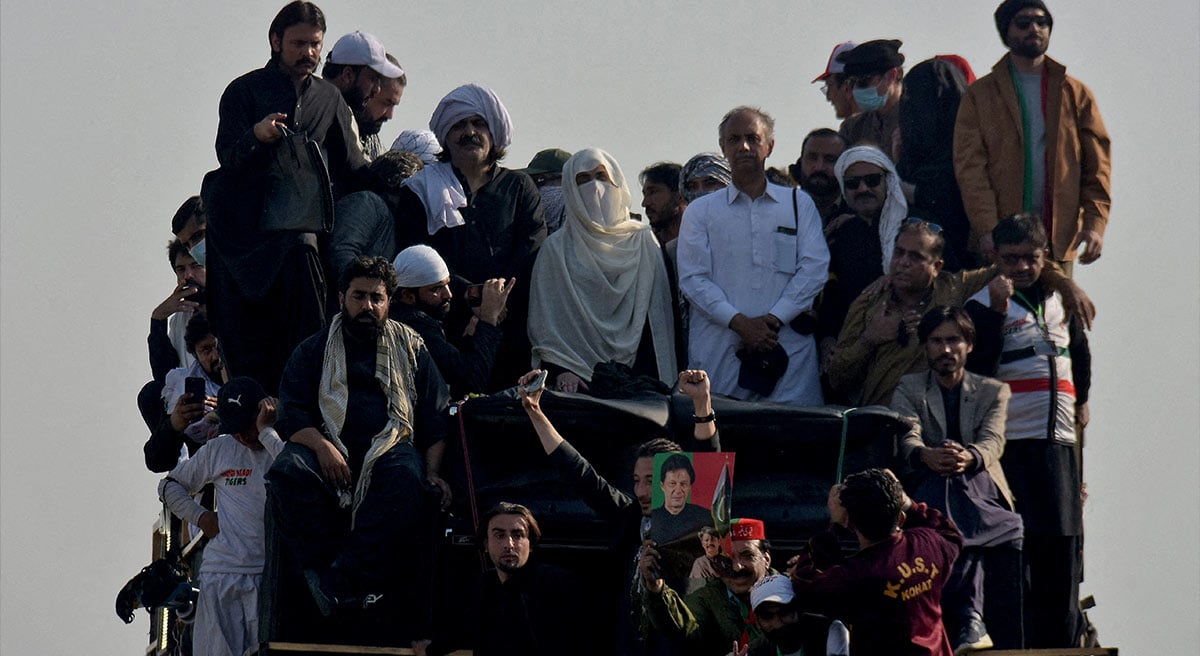
As the government had deployed heavy contingents of army and Rangers alongside police, the clashes with PTI workers resulted in deaths of at least five security personnel. Over a 1,000 supporters of the party were arrested and hundreds were booked in different cases under charges of vandalism and arson.
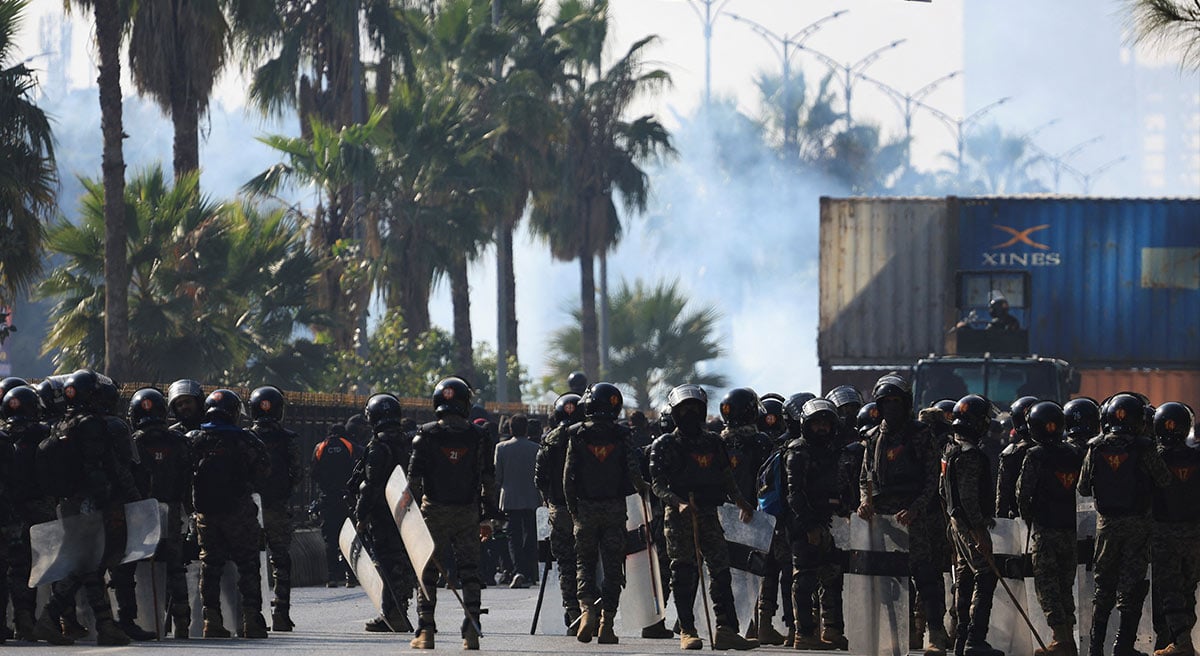
The government’s response, which involved army and paramilitary forces’ deployment, heavy security measures and legal restrictions, led to widespread unrest, disrupting daily life in major cities owing to roadblocks and massive internet and mobile phone networks.
It is noteworthy that popular social media platform X, which is an important source of information, remains inaccessible to millions of users across the country, despite numerous calls from human rights activists and civil society organisations for immediate resumption.
The government initially restricted access to the site ahead of the February 8 general election, and it is now officially blocked due to "national security" concerns.

Apart from the political unrest in 2024, Pakistan also faced scores of terrorist attacks, particularly in the northwestern province of Khyber Pakhtunkhwa and Balochistan. These areas remained the hotspots for militant activity throughout the year.
In August, the resource-rich southwestern province was hit by a series of deadly attacks, which claimed over 50 lives in a single day. The victims included civilians, police, and military personnel. Fast forward to November, when a suicide bombing at the Quetta Railway Station killed 27 people, including security personnel and civilians, and injured 62 others.
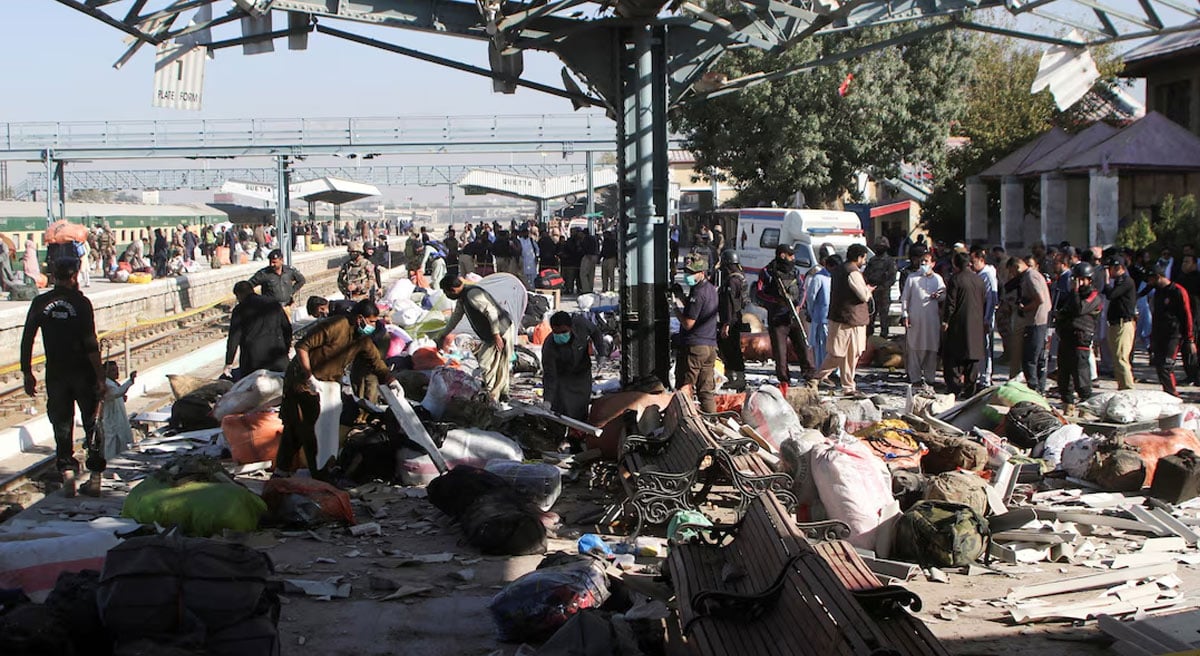
October 6 saw another dastardly attack, but the location was in Karachi. A suicide bomber targeted a convoy of Chinese engineers in at the Jinnah International Airport, killing three, including two foreigners, and injuring 16, including another Chinese national. This attack occurred just a week before the SCO summit in Islamabad.
It was a major but the only incident involving Chinese nationals. Earlier this year, five Chinese nationals working on the Dasu dam project lost their lives in a suicide bombing in Bisham as well.
A recent Ministry of Interior report highlighted 1,566 terrorist incidents in the first 10 months of the year, claiming 924 lives. Of these, 583 deaths occurred in Khyber Pakhtunkhwa, an area frequently targeted by militants.
Against this backdrop, the Central Apex Committee — a civil-military body — formally sanctioned a comprehensive military operation in November. The operation aims to dismantle terrorist organisations operating in the province, which target innocent civilians and foreign nationals to undermine the country's economic progress and foster insecurity at the behest of hostile external powers.
This initiative falls under the framework of the renewed national counter-terrorism campaign, Operation Azm-e-Istehkam. The federal cabinet had endorsed the campaign earlier in June, following recommendations from the Apex Committee under the National Action Plan.
While terrorism remained a key concern for the government, one cannot shut their eyes to the tribal violence in the restive Kurram region that claimed over 200 lives in 2024. The armed clashes between the warring groups, which intensified in November, raised questions on the authorities’ failure to establish peace in the province.

IMF’s approval of $7 billion bailout: This September, the International Monetary Fund (IMF) approved a critical, $7 billion bailout package for Pakistan, aimed at assisting the government in economic recovery.
Faced with chronic mismanagement, the national economy has found itself on the brink of default, amidst the aftereffects of the COVID-19 pandemic, the Ukraine war, and devastating floods in 2022.
With dwindling foreign currency reserves and mounting debt, the country sought an emergency loan from the IMF in the summer of 2023. The latest bailout was contingent on the government's commitment to reforms, including broadening the tax base — a measure reflected in the tax-heavy budget passed earlier this year by the incumbent administration.
SCO summit: Pakistan successfully hosted the 23rd meeting of the SCO Council of the Heads of Governments (CHG) despite political unrest and grave security concerns in the wake of a protest call by Khan’s party in Islamabad.
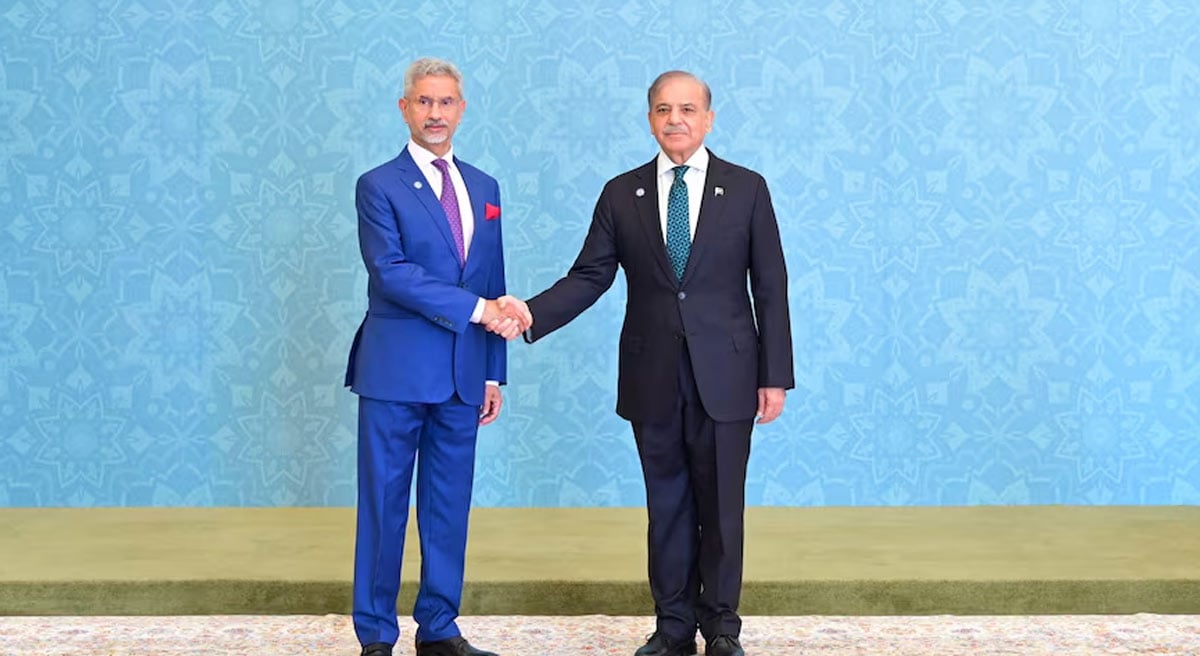
The event was the highest-profile in years, with leaders from 10 countries, including key SCO members attending the moot.
Indian Foreign Minister Subrahmanyam Jaishankar's participation was a major highlight that marked a significant diplomatic moment while the two nuclear arch-rivals shared frosty relations.
Positive economic outlook: Regional and global lenders have revised Pakistan's economic growth projections upward for FY2025, indicating signs of recovery despite ongoing challenges.
The World Bank has raised its GDP growth projection for FY25 to 2.8%, up from the previous estimate of 2.3%.
This improvement is attributed to the easing of import restrictions, a reduction in domestic supply chain disruptions, and lower inflation, alongside a more favourable business environment with credit rating upgrades and less political uncertainty.
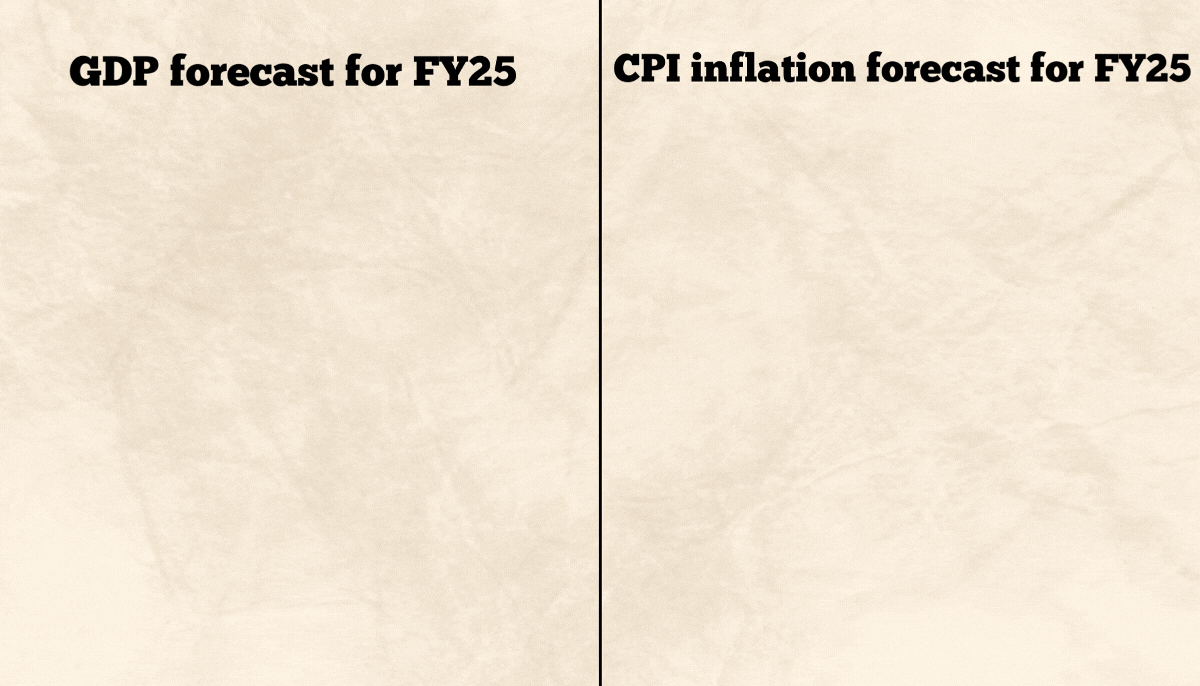
Similarly, the Asian Development Bank (ADB) has revised its GDP growth forecast for FY25 upwards to 3% from 2.8%, while also lowering the inflation forecast to 10% from 15% in FY2024.
The ADB cites greater macroeconomic stability, investor confidence, and improved industrial output due to eased import restrictions and better access to foreign exchange as key drivers of recovery.
Meanwhile, the International Monetary Fund (IMF) has projected Pakistan’s GDP growth for the current fiscal year at 3.2%, which, although falling short of the government’s budget target, still exceeds the projections of other global organisations.
The IMF also anticipates inflation to remain in the single digits at 9.5%, with a current account deficit nearing 1%.
The year-long upheaval across the country’s sociopolitical, economic, and security sectors is expected to resonate well into 2025. However, as citizens of this country, let's hope a brighter, more positive year lies ahead — one marked by political stability and progress.
Mehreen Ansari is a staffer at Geo.tv. She posts on X@MehreenAnsari17
Disclaimer: The viewpoints expressed in this piece are the writer's own and don't necessarily reflect Geo.tv's editorial policy.
Header and thumbnail image by Geo.tv



